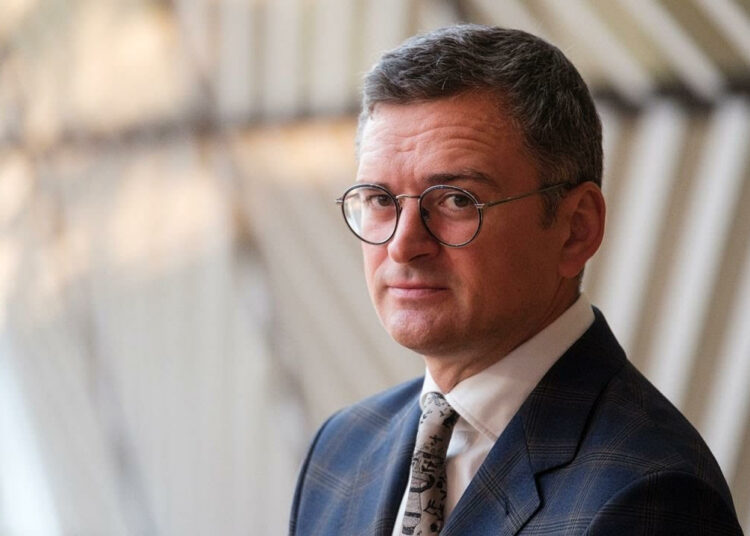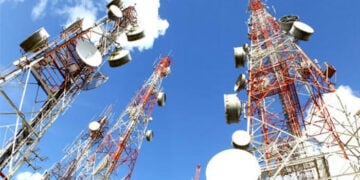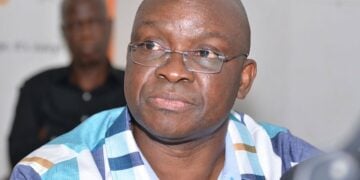Ukraine’s political landscape is bracing for a significant shake-up as Foreign Minister Dmytro Kuleba tendered his resignation ahead of a major cabinet reshuffle.
This announcement came amid a deadly surge in Russian missile attacks, including an overnight strike that killed at least seven people, among them a child.
Kuleba’s resignation marked the departure of another key figure in President Volodymyr Zelensky’s administration.
Known as Ukraine’s top diplomat and one of the most visible members of Zelensky’s cabinet on the international stage, Kuleba’s exit has added to the growing list of high-profile resignations as the conflict with Russia continue unabated. His decision also came ahead of an anticipated visit by President Zelensky to the United States later this month.
Ukrainian parliament speaker, Ruslan Stefanchuk confirmed on Telegram that Kuleba’s resignation would be reviewed at an upcoming plenary meeting.
Meanwhile, the majority leader in parliament, Davyd Arakhamia, hinted at sweeping changes to come, stating, “As promised, a major government reset can be expected this week. More than 50% of the Cabinet of Ministers’ staff will be changed,” with new appointments expected soon.
Among the recent departures from government is Oleksandr Kamyshin, the Minister for Strategic Industries, who oversaw weapons production.
According to Reuters, Kamyshin is slated to assume a new role within the defense sector. Additionally, the ministers responsible for justice, environment, and reintegration have also resigned.
In his address on Tuesday night, President Zelensky emphasised the significance of the upcoming months, declaring that the coming fall will be “extremely important for Ukraine.”
He stressed the necessity for “our state institutions to be set up so that Ukraine achieves all the results we need,” and indicated the need to “strengthen some areas of the government.” Zelensky also hinted at a shift in focus, stating, “I am also counting on a slightly different weight for certain areas of our foreign and domestic policy.”
The political turbulence coincide with continued Russian missile assaults on Ukrainian cities. In Lviv, Mayor Andriy Sadovyi reported that residential buildings were damaged in the recent attack that claimed several lives.
Head of the regional military administration in Lviv, Maksym Kozytskyi, confirmed that a 14-year-old girl was among the dead, and at least 25 people were injured, including a 15-month-old child with moderate injuries and four other children with minor injuries.
Lviv, located in Ukraine’s far west, has been regarded as a relatively safe haven, prompting many from eastern regions to relocate there.
However, recent attacks have shattered this perception of safety. On the previous day, a Russian strike targeted a military educational facility in central Ukraine, resulting in 51 deaths and over 200 injuries, as reported by Ukraine’s Prosecutor General’s office.
This assault is considered as one of the deadliest since Russia’s full-scale invasion began in February 2022.
“Ordinary residential buildings in the city, schools, and medical facilities were damaged,” Zelensky shared in a Telegram post regarding the Lviv attack.
The violence has also reached other regions. In Kryvyi Rih, located in central Ukraine, a Russian attack destroyed a hotel building, injuring five people, according to Serhiy Lysak, head of the Dnipropetrovsk regional military administration.
This comes shortly after a massive Russian drone and missile attack aimed at energy infrastructure across Ukraine resulted in two deaths at a hotel in Kryvyi Rih.
In response to these relentless assaults, Zelensky made a plea for international support: “Each of our partners in the world who help Ukraine with air defense is a real defender of life.”
He further urged for enhanced support for Ukraine’s air defenses, stating, “Anyone who convinces partners to give Ukraine more range in order to respond to terror justly is working to prevent such Russian terrorist attacks on Ukrainian cities. Terror must be stopped.”





